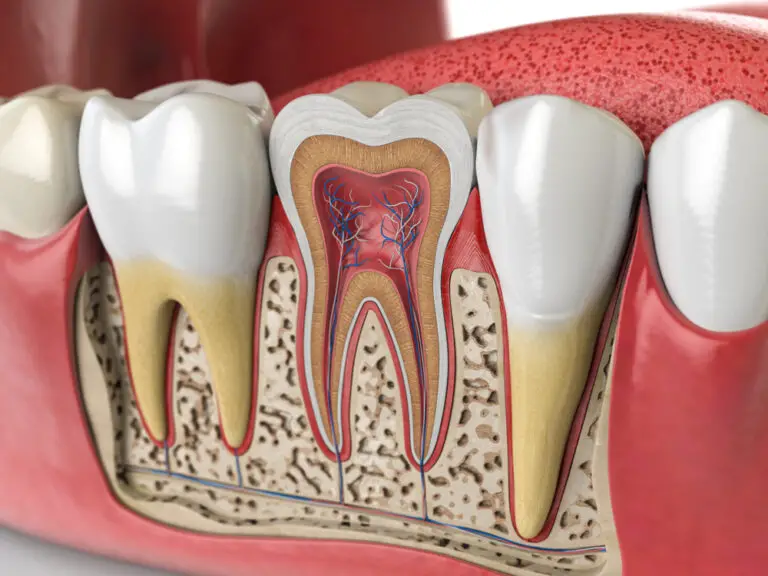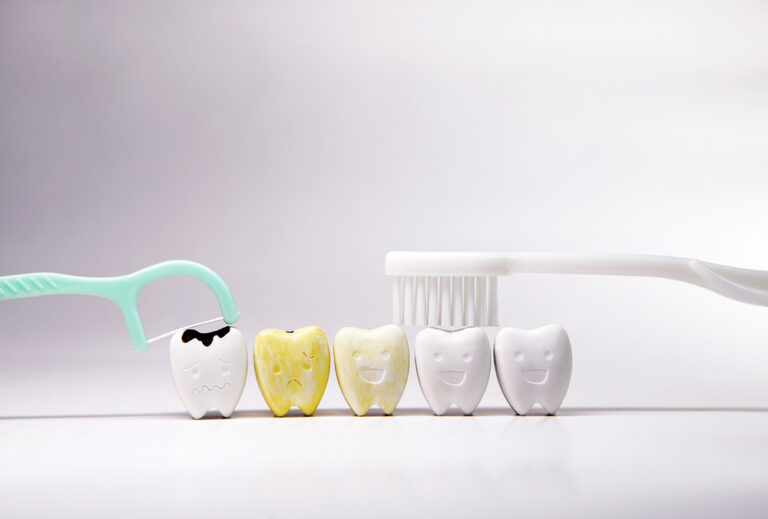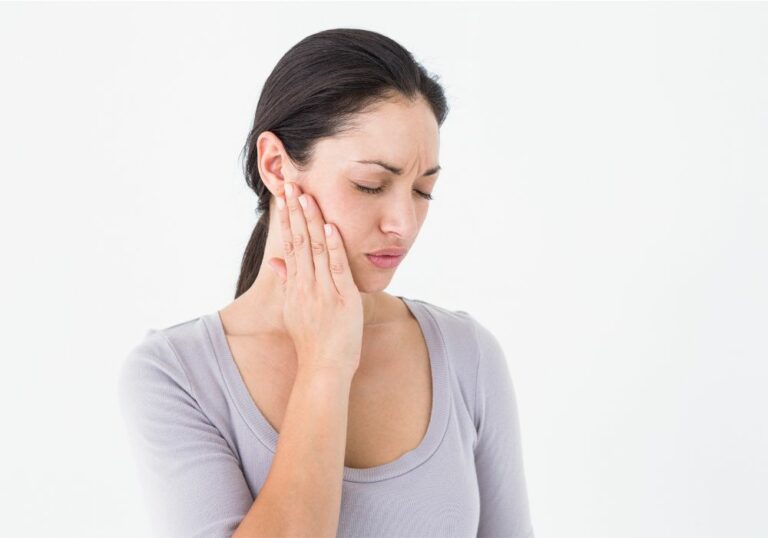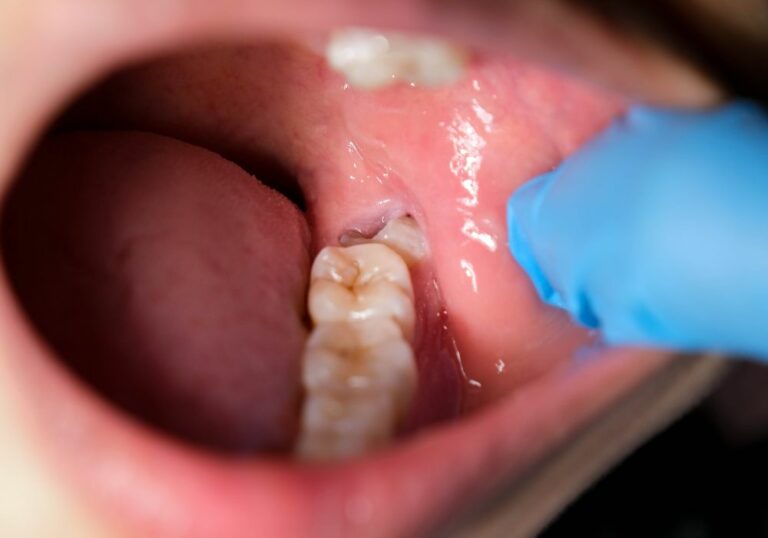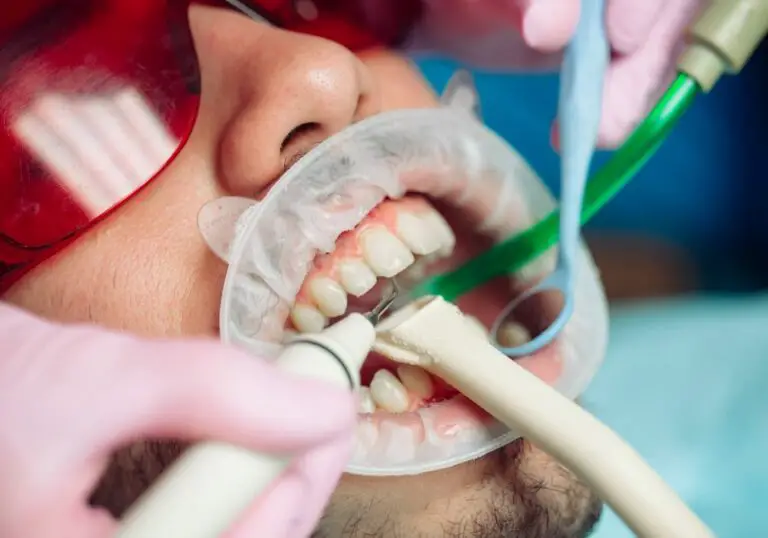Taking care of your gums is an essential part of maintaining good oral hygiene. Neglecting your gums can lead to a buildup of plaque and bacteria, which can cause gum disease and tooth decay. Fortunately, cleaning your gums is a simple process that you can easily incorporate into your daily routine.
One of the most effective ways to clean your gums is by using antiseptic mouthwash. This type of mouthwash contains chlorhexidine, which helps prevent the buildup of plaque on your teeth and gums. You can purchase antiseptic mouthwash over the counter at your local pharmacy, but be sure to use it as directed by your doctor or pharmacist.
Another way to clean your gums is by flossing daily. Flossing helps remove food particles and plaque from between your teeth and along your gumline. It’s important to floss gently and thoroughly to avoid injuring your gums. In addition to flossing, brushing your teeth twice a day with a soft-bristled toothbrush can also help keep your gums healthy.
Understanding the Importance of Gum Health
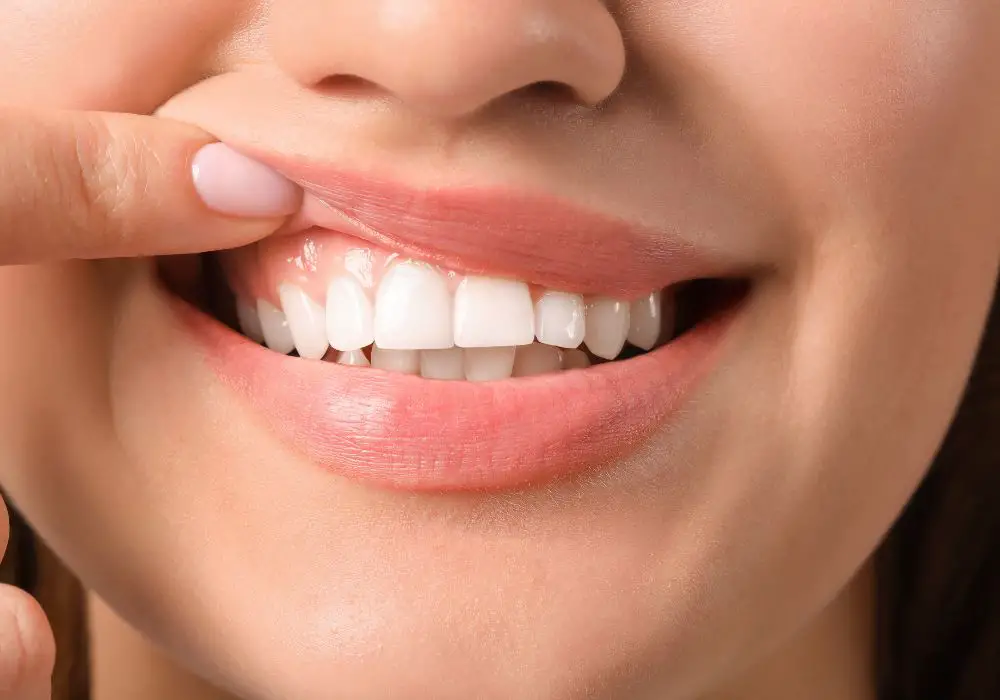
Maintaining healthy gums is essential for overall oral health. Your gums play a crucial role in supporting your teeth and keeping them in place. If you neglect your gum health, it can lead to various dental problems such as gum disease, tooth decay, and even tooth loss.
Gum disease, also known as periodontal disease, is a bacterial infection that affects the gums and bone that support your teeth. If left untreated, it can cause serious damage to your teeth and gums, and even lead to tooth loss.
The good news is that gum disease is preventable. By taking good care of your gums, you can reduce your risk of developing gum disease and other dental problems. Here are some tips to help you maintain healthy gums:
- Brush and floss regularly: Brush your teeth at least twice a day and floss at least once a day to remove plaque and food particles from your teeth and gums.
- Use fluoride toothpaste: Fluoride helps to strengthen your tooth enamel and protect your teeth from decay.
- Eat a healthy diet: A balanced diet that is rich in vitamins and minerals can help to keep your gums healthy.
- Avoid smoking: Smoking is a major risk factor for gum disease and other oral health problems.
- Visit your dentist regularly: Regular dental checkups can help to detect early signs of gum disease and other dental problems.
By following these simple steps, you can keep your gums healthy and prevent dental problems. Remember, healthy gums are essential for a healthy smile!
Identifying Gum Issues
Taking care of your gums is just as important as taking care of your teeth. Gum issues can lead to serious problems if left untreated. Here are some common gum issues you should be aware of:
Gum Disease
Gum disease, also known as periodontal disease, is a bacterial infection that affects the gums and the bone that supports the teeth. It is caused by a buildup of plaque on the teeth, which can lead to inflammation and infection. If left untreated, gum disease can lead to tooth loss.
Symptoms of gum disease include red, swollen, and bleeding gums, bad breath, and a bad taste in your mouth. If you notice any of these symptoms, it’s important to see your dentist as soon as possible.
Gingivitis
Gingivitis is a mild form of gum disease that causes inflammation of the gums. It is caused by a buildup of plaque on the teeth, which can lead to irritation and inflammation of the gums. Gingivitis is reversible with proper treatment, but if left untreated, it can progress to more serious forms of gum disease.
Symptoms of gingivitis include red, swollen, and bleeding gums, bad breath, and a bad taste in your mouth. If you notice any of these symptoms, it’s important to see your dentist as soon as possible.
Periodontitis
Periodontitis is a more serious form of gum disease that can lead to tooth loss. It is caused by a buildup of plaque on the teeth, which can lead to inflammation and infection of the gums and the bone that supports the teeth. Periodontitis is not reversible, but it can be managed with proper treatment.
Symptoms of periodontitis include red, swollen, and bleeding gums, bad breath, a bad taste in your mouth, and loose teeth. If you notice any of these symptoms, it’s important to see your dentist as soon as possible.
In summary, it’s important to be aware of the common gum issues and their symptoms. If you notice any of these symptoms, it’s important to see your dentist as soon as possible to prevent further damage to your gums and teeth.
Daily Gum Cleaning Routine
Keeping your gums clean is an essential part of maintaining good oral health. A daily gum cleaning routine can help prevent gum disease and other dental problems. Here are a few tips to help you establish a daily gum cleaning routine:
Proper Brushing Technique
Brushing your teeth is essential, but it’s equally important to brush your gums. Here’s how to do it properly:
- Start by choosing a soft-bristled toothbrush that fits comfortably in your mouth.
- Apply a pea-sized amount of toothpaste to your brush.
- Hold your toothbrush at a 45-degree angle to your gums.
- Use gentle circular motions to brush your gums and teeth.
- Be sure to brush the front, back, and top of each tooth.
- Brush for at least two minutes twice a day.
Flossing
Flossing is another critical part of your daily gum cleaning routine. It helps remove food particles and plaque from between your teeth and gums. Here’s how to floss properly:
- Start by taking a piece of floss about 18 inches long.
- Wrap the floss around your index fingers, leaving about two inches of floss between them.
- Gently slide the floss between your teeth using a back-and-forth motion.
- Curve the floss around the base of each tooth, making sure to go beneath the gum line.
- Use a clean section of floss for each tooth.
- Floss at least once a day.
By following these simple steps, you can establish a daily gum cleaning routine that will help keep your gums healthy and your smile bright. Remember to brush and floss regularly, and don’t forget to visit your dentist for regular checkups and cleanings.
Using Mouthwash for Gum Health
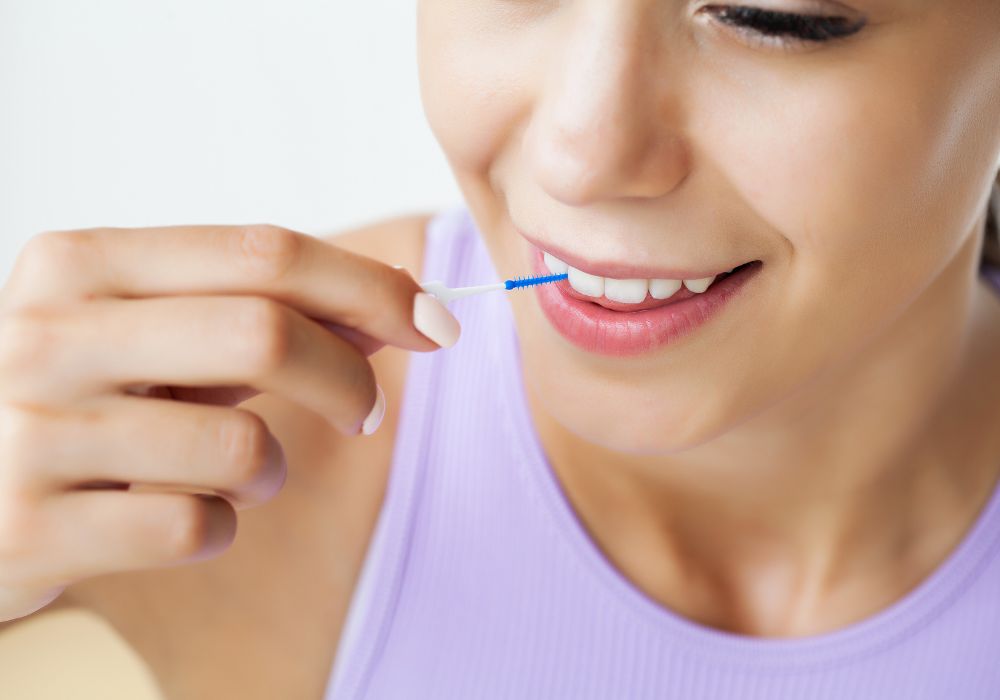
Mouthwash is a liquid product used to rinse your teeth, gums, and mouth. It contains an antiseptic that can kill harmful bacteria that can cause gum disease. Mouthwash can be an effective tool in your oral hygiene routine to keep your gums healthy.
Here are some tips for using mouthwash to improve your gum health:
- Choose the right mouthwash: Look for a mouthwash that is specifically designed for gum health. Some mouthwashes contain ingredients like fluoride or essential oils that can help reduce inflammation and fight bacteria.
- Use mouthwash after brushing and flossing: Brushing and flossing help remove plaque and food particles from your teeth and gums. Rinsing with mouthwash after brushing and flossing can help kill any remaining bacteria and freshen your breath.
- Follow the instructions on the label: Different mouthwashes have different instructions for use. Some may recommend rinsing for 30 seconds, while others may recommend a full minute. Be sure to read the label and follow the instructions carefully.
- Don’t swallow mouthwash: Mouthwash is not meant to be swallowed. If you accidentally swallow some, rinse your mouth with water and contact a healthcare professional if you experience any adverse effects.
- Use mouthwash in moderation: While mouthwash can be beneficial for your gum health, using too much can be harmful. Overuse of mouthwash can cause irritation and dryness of the mouth, which can lead to other oral health problems.
In summary, using mouthwash can be a helpful addition to your oral hygiene routine to improve your gum health. Choose the right mouthwash, use it after brushing and flossing, follow the instructions on the label, and use it in moderation.
Importance of Regular Dental Visits
Regular dental visits are an essential part of maintaining good oral health. Visiting your dentist at least twice a year can help prevent tooth decay, gum disease, and other oral health problems. During your visit, your dentist will check for any signs of oral health issues and provide you with the necessary treatment to prevent them from becoming more serious.
In addition to preventing oral health problems, regular dental visits can also help detect other health issues. Your dentist can detect signs of diseases such as diabetes, oral cancer, and heart disease during your dental exam. Early detection of these health issues can lead to more successful treatment and better health outcomes.
During your dental visit, your dentist will also provide you with important information on how to maintain good oral health. They can advise you on the best oral hygiene practices, such as brushing and flossing techniques, and recommend products that can help keep your teeth and gums healthy.
Overall, regular dental visits are an important part of maintaining good oral and overall health. By visiting your dentist twice a year, you can prevent oral health problems, detect other health issues early, and receive important information on how to maintain good oral hygiene.
Lifestyle Changes for Healthier Gums
If you want to keep your gums healthy, it’s important to make some lifestyle changes. Here are two key changes you can make to improve the health of your gums:
Healthy Eating Habits
Eating a healthy diet can help keep your gums healthy. Make sure you’re getting enough vitamins and minerals, especially vitamin C, which is important for gum health. You can get vitamin C from citrus fruits, strawberries, kiwi, and other fruits and vegetables.
Eating foods that are high in sugar and starch can increase your risk of gum disease. These foods can stick to your teeth and gums, promoting the growth of harmful bacteria. Try to limit your intake of sugary and starchy foods, and instead choose foods that are high in fiber, like fruits, vegetables, and whole grains.
Quitting Smoking
Smoking is a major risk factor for gum disease. It can damage your gums and make it harder for them to heal. If you smoke, quitting is one of the best things you can do for your gum health.
Quitting smoking can be challenging, but there are many resources available to help you. Talk to your doctor or dentist about strategies for quitting, such as nicotine replacement therapy or support groups. You can also try to reduce your stress levels, since stress can make it harder to quit smoking.
Making these lifestyle changes can help keep your gums healthy and prevent gum disease. Talk to your dentist if you have any questions about how to improve your gum health.
Natural Remedies for Gum Cleaning
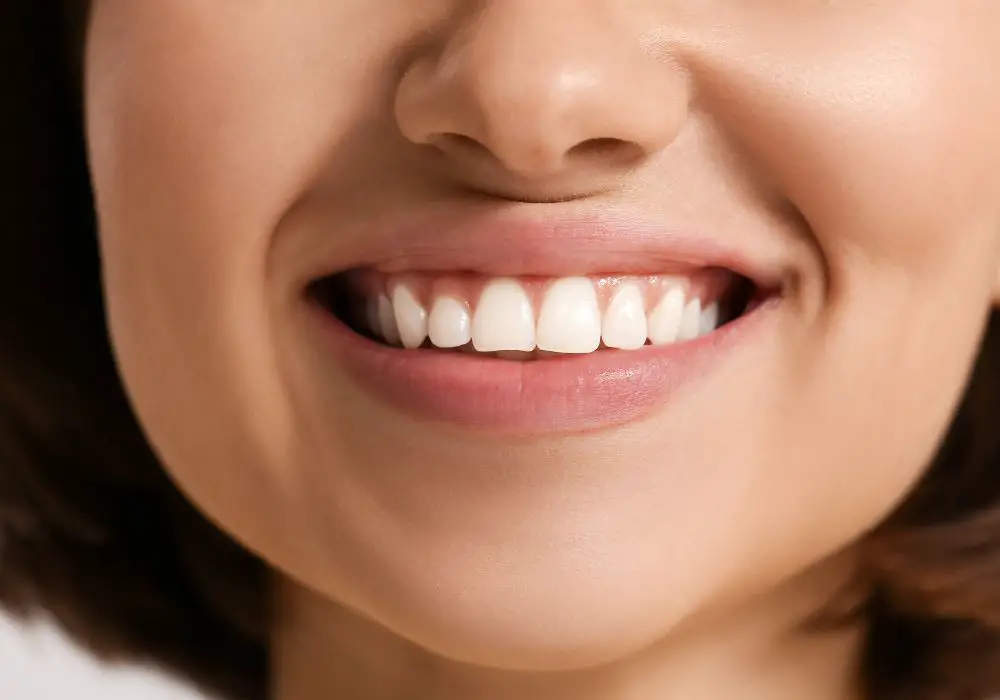
If you’re looking for a more natural approach to cleaning your gums, there are a few remedies that you can try. Here are two options to consider:
Oil Pulling
Oil pulling is an ancient Ayurvedic practice that involves swishing oil around in your mouth for several minutes. The idea is that the oil will help to remove toxins and bacteria from your mouth, including those that can lead to gum disease.
To try oil pulling, follow these steps:
- Choose an oil: You can use coconut oil, sesame oil, or sunflower oil. Coconut oil is a popular choice because it has antimicrobial properties.
- Put a tablespoon of oil in your mouth: Swish the oil around in your mouth for 15-20 minutes. Be sure not to swallow it.
- Spit out the oil: After 15-20 minutes, spit the oil out into a trash can. Do not spit it out in the sink, as it can clog your pipes.
Herbal Mouthwashes
Another option to consider is using a herbal mouthwash. These mouthwashes contain natural ingredients that can help to reduce inflammation and fight bacteria in your mouth.
Here are a few herbs that are commonly used in herbal mouthwashes:
- Sage: Sage has antimicrobial and anti-inflammatory properties.
- Peppermint: Peppermint can help to freshen your breath and has antimicrobial properties.
- Chamomile: Chamomile has anti-inflammatory properties and can help to soothe irritated gums.
To make an herbal mouthwash, follow these steps:
- Boil water: Boil a cup of water and let it cool slightly.
- Add herbs: Add a teaspoon of dried herbs (sage, peppermint, chamomile, or a combination) to the water.
- Steep: Let the herbs steep in the water for 10-15 minutes.
- Strain: Strain the herbs out of the water.
- Rinse: Use the herbal mouthwash to rinse your mouth.
Note that these natural remedies should be used in conjunction with regular brushing and flossing, not as a replacement. If you have severe gum disease, it’s important to see a dentist for treatment.
Frequently Asked Questions
What are some natural ways to strengthen your gums?
There are several natural ways to strengthen your gums. One way is to eat a healthy diet that is rich in vitamins and minerals, especially vitamin C. Another way is to use natural remedies such as saltwater rinses, tea tree oil, and aloe vera gel. These remedies can help reduce inflammation and promote healing.
How can you get healthy gums overnight?
Unfortunately, there is no way to get healthy gums overnight. It takes time and consistent effort to maintain healthy gums. However, there are a few things you can do to help improve the health of your gums quickly. One way is to brush your teeth and gums thoroughly twice a day with a soft-bristled toothbrush. Another way is to floss daily to remove plaque and food particles from between your teeth and gums.
What are some tips for maintaining healthy teeth and gums?
To maintain healthy teeth and gums, it is important to brush your teeth and gums at least twice a day with fluoride toothpaste and a soft-bristled toothbrush. You should also floss daily to remove plaque and food particles from between your teeth and gums. Additionally, you should eat a healthy diet that is rich in vitamins and minerals, and avoid sugary and acidic foods and drinks.
How can you clean your teeth at home like a dentist?
To clean your teeth at home like a dentist, you should use a fluoride toothpaste and a soft-bristled toothbrush. Brush your teeth and gums thoroughly for at least two minutes, making sure to brush all surfaces of your teeth. You should also floss daily to remove plaque and food particles from between your teeth and gums.
How do you deep clean your gums at home?
To deep clean your gums at home, you can use a water flosser or an interdental brush to clean between your teeth and gums. You can also use a gum stimulator to massage your gums and promote healthy blood flow. Additionally, you can use a saltwater rinse to help reduce inflammation and promote healing.
What are some ways to make your gums healthy again?
To make your gums healthy again, you should practice good oral hygiene habits such as brushing your teeth and gums twice a day with fluoride toothpaste and flossing daily. You should also eat a healthy diet that is rich in vitamins and minerals, and avoid sugary and acidic foods and drinks. Additionally, you can use natural remedies such as saltwater rinses, tea tree oil, and aloe vera gel to help reduce inflammation and promote healing.

